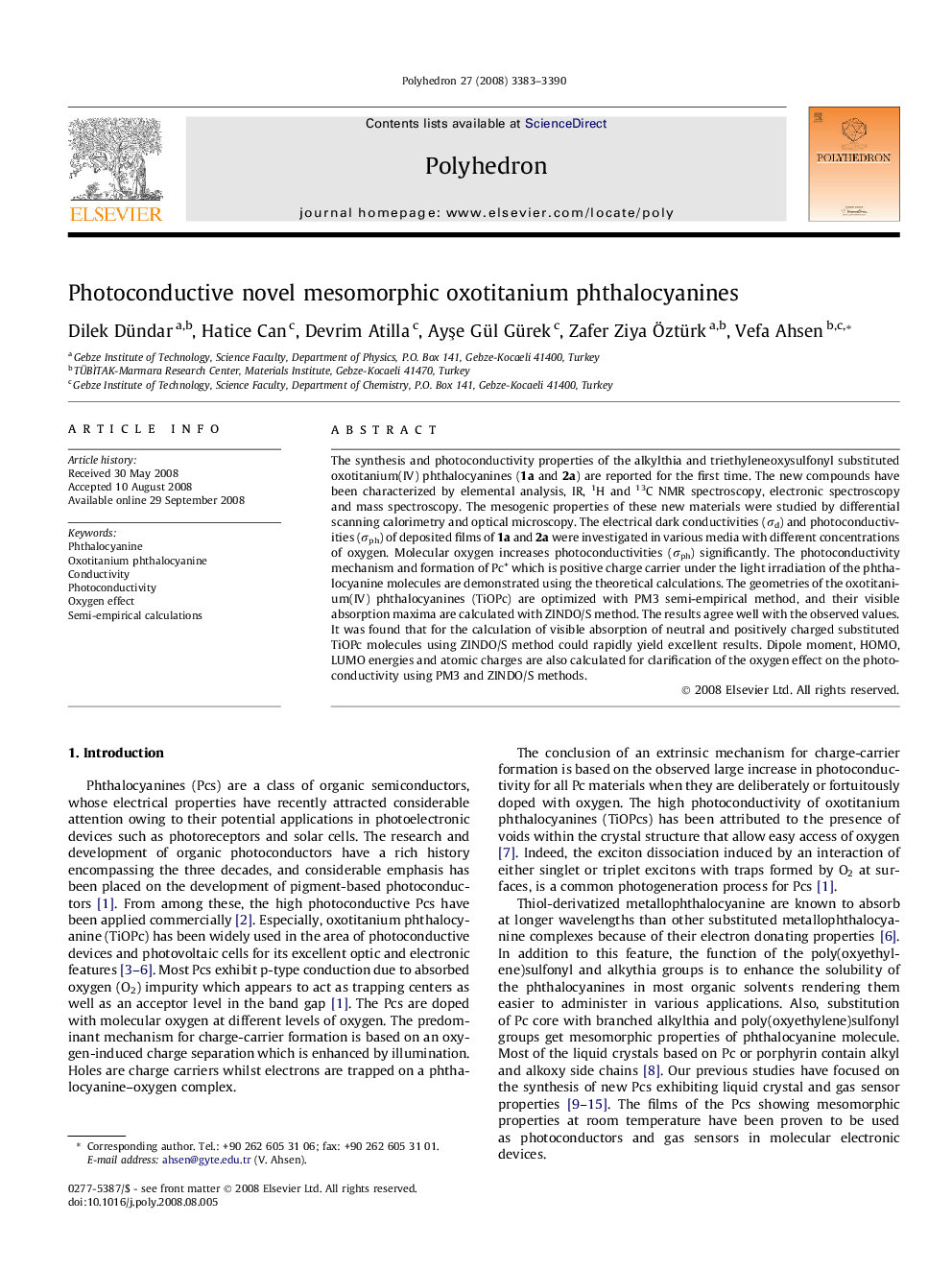| کد مقاله | کد نشریه | سال انتشار | مقاله انگلیسی | نسخه تمام متن |
|---|---|---|---|---|
| 1335323 | 979521 | 2008 | 8 صفحه PDF | دانلود رایگان |

The synthesis and photoconductivity properties of the alkylthia and triethyleneoxysulfonyl substituted oxotitanium(IV) phthalocyanines (1a and 2a) are reported for the first time. The new compounds have been characterized by elemental analysis, IR, 1H and 13C NMR spectroscopy, electronic spectroscopy and mass spectroscopy. The mesogenic properties of these new materials were studied by differential scanning calorimetry and optical microscopy. The electrical dark conductivities (σd) and photoconductivities (σph) of deposited films of 1a and 2a were investigated in various media with different concentrations of oxygen. Molecular oxygen increases photoconductivities (σph) significantly. The photoconductivity mechanism and formation of Pc+ which is positive charge carrier under the light irradiation of the phthalocyanine molecules are demonstrated using the theoretical calculations. The geometries of the oxotitanium(IV) phthalocyanines (TiOPc) are optimized with PM3 semi-empirical method, and their visible absorption maxima are calculated with ZINDO/S method. The results agree well with the observed values. It was found that for the calculation of visible absorption of neutral and positively charged substituted TiOPc molecules using ZINDO/S method could rapidly yield excellent results. Dipole moment, HOMO, LUMO energies and atomic charges are also calculated for clarification of the oxygen effect on the photoconductivity using PM3 and ZINDO/S methods.
The synthesis and photoconductivity properties of the alkylthia and triethyleneoxysulfonyl substituted oxotitanium (IV) phthalocyanines (1a and 2a) are reported for the first time. The electrical dark conductivities (σd) and photoconductivities (σph) of deposited films of 1a and 2a were investigated in various media. The photoconductivity mechanism and formation of Pc+ which is positive charge carrier under the light irradiation of the phthalocyanine molecules are demonstrated using the theoretical calculations.Figure optionsDownload as PowerPoint slide
Journal: Polyhedron - Volume 27, Issue 16, 5 November 2008, Pages 3383–3390